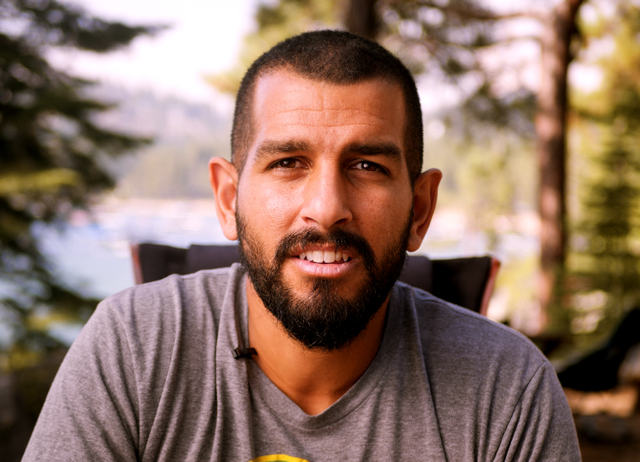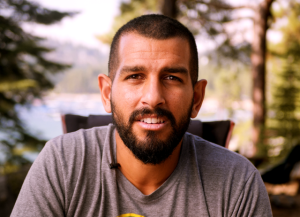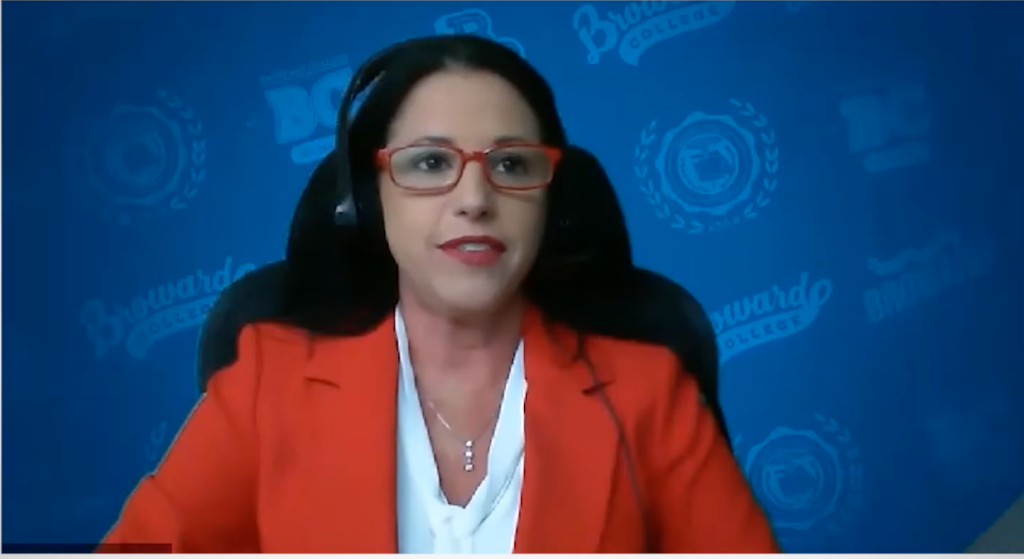
Using Video to Learn New Skills, Engage Students … and Satirize
A few years ago, Andrew Ishak made a big New Year’s resolution. In 2018, he pledged to create 52 videos in an effort to get better at making videos.
“I didn’t care how good the videos were. I didn’t care what the reception was, or how many people saw them,” said Ishak, a lecturer at Santa Clara University. “I just cared about getting them done.”
Ishak’s learning journey, which included earning an ACUE certificate in effective college instruction, has continued beyond a one-year project. In the COVID era of online teaching and learning, his video skills are keeping his students engaged. Recently, he became something of an internet celebrity in academia after his satire video, Making Your Zoom Look More Professorial, went viral. Ishak believes the video, which has received nearly 200,000 views, struck a chord because many faculty believe a fixation on traditional norms of professionalism is hardly a top priority when it comes to supporting students during a pandemic.
“What does it mean to be a good teacher right now?” Ishak says. “It starts with being compassionate.”
In this interview, Ishak, an ACUE-credentialed educator, talks about viral videos, lifelong learning, and more.
What motivated you to start creating and posting videos?
A few years ago I decided that I wanted to improve my video making skills, so in 2018, I took on a project to make 52 videos that year. I didn’t care how good the videos were. I didn’t care what the reception was, or how many people saw them. I just cared about getting them done. And for every video, I would force myself to write down three things that I learned or wanted to do better for the next time.
Part of the reason I did this was that I was asking my students to put themselves out there. I’m asking them to make mistakes and reflect on how they’re going to do better. So I wanted to model this approach to learning.
How do you incorporate videos into your teaching? What advice do you have for faculty who want to get started?
As I got better at making videos, I started learning about how I could use videos to connect with students. Now that everyone is teaching from home with COVID, that’s really allowed me to think more about how I can make videos more appealing for them.
For instructors, I’d say that making lots of short videos can be really effective. I put a lot of short videos in my modules and they’re not necessarily all instructional or microlectures. A lot of them are videos to encourage students, just to say, “hey, I know that this has been a tough assignment,” to keep them focused, and remind them what we’re trying to learn. Others are literally just to introduce a topic or idea, and tell the students what we’re going to cover and which things they’ll want to focus on. It’s actually very similar to an ACUE module.
What prompted you to create your “Making Your Zoom Look More Professorial” satire video?
There was this article published about why faculty need to appear professorial when teaching online. It was well-intentioned and had some good advice, but I think the framing was off. When people hear the word ‘professorial’ they think to themselves, okay I need to have a beautiful bookshelf behind me and oak cabinets, or something like that. But not all professors are just always constantly sitting around an office and thinking. That’s not how we work.
So I knew I wanted to make something about it and after I taught my two classes that day I started making the video. By 4:30 I posted it and was shocked by how many people enjoyed it. It just kind of took off. I think a lot of faculty can relate to it because so many people are at home right now in their two-bedroom apartments, or working in the same rooms as their spouses, or they’re taking care of their kids, and we have messy houses sometimes.
I think it’s good for students and faculty to think about what their Zoom space looks like. But I think it’s a good idea in the same way that I think it’s, you know, good to stretch. If you don’t have time to do it, then you don’t do it, and then the rest of your day happens, and you’re fine.
I’m lucky. We have a spare bedroom with nice lighting, I can make a space that looks pleasant. You see a bit of a whiteboard where I write notes for students. I’ve put up some of my favorite books about sports. If you can do these kinds of things, that’s great. But if you can’t, that’s fine. Everybody’s in a different situation right now.
How has your experience with ACUE impacted your teaching?
The ACUE class was so impactful for me. I learned a lot of new techniques that I knew about, but that I never actually used. Because ACUE was asking me to go ahead and try it in class, I actually implemented it. If it doesn’t work, fine. If it does, it gave me another tool that I could use. I would say I have a bigger collection of tools that I could use on a daily basis or on a weekly basis to teach students in a better way.
The biggest way is that it really changed how I thought about the portfolio assessment of students. I used to be very strict with late assignments but I changed my mindset on that kind of stuff after learning about assessment and grading. Now, when students turn in work that wasn’t very good, I give them a chance to redo it and earn some of the credit back. Yes, it is a little bit more work for me, but what am I trying to do here? What is the point of me teaching? The point is for them to learn something, so if I can have them redo something that actually meets the criteria, that’s great. I want as many students to meet the criteria as possible.


